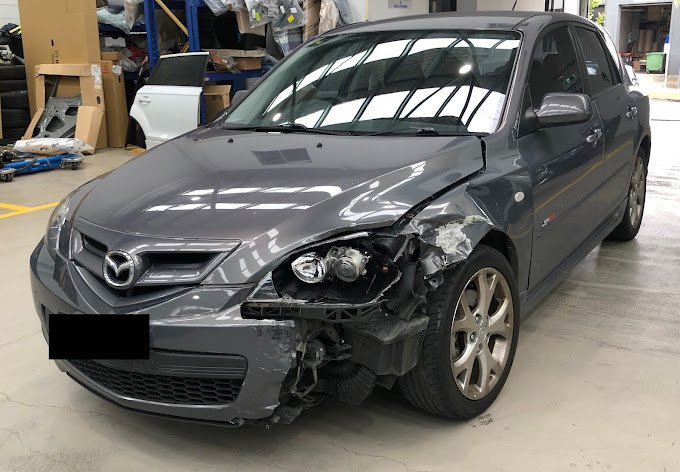It’s a familiar sight in driveways across Brisbane: the old family car, the project that never got finished, or the daily runabout that’s seen better days. It still has value, but the thought of selling it brings one major roadblock to mind: the dreaded Roadworthy Certificate (RWC).
Many Queenslanders find themselves in this exact position. They have a car they want to sell, but it’s old, damaged, or unregistered. They fear that the cost and hassle of getting it to pass a safety inspection will outweigh the car’s actual value.
The good news? You absolutely can sell a car in Queensland without a current RWC. But it’s crucial to understand the rules, your legal options, and the pros and cons of each method. This guide will comprehensively explore the regulations surrounding RWCs, your pathways for selling without one, and how to identify the simplest, most profitable solution for your situation.
Section 1: What Exactly is a Queensland Roadworthy Certificate (RWC)?
First, let’s clear up the terminology. What most people call a “Roadworthy Certificate” or “RWC” is officially known in Queensland as a Safety Certificate. The terms are used interchangeably, but “Safety Certificate” is the legal name you’ll see on all official forms from the Department of Transport and Main Roads (TMR).
A Safety Certificate is a document that confirms your vehicle meets a minimum safety standard. It is not a guarantee of the car’s mechanical reliability or cosmetic condition, but rather a snapshot of its fundamental safety features at the time of inspection.
When is a Safety Certificate Legally Required?
In Queensland, you must have a valid Safety Certificate when:
- Selling a registered light vehicle (cars, utes, trailers, etc.).
- Transferring registration to a new owner.
- Re-registering an unregistered vehicle.
- Transferring registration from another state to Queensland.
What is Checked During an Inspection?
An inspection for a Safety Certificate is a thorough check of the car’s key safety components. It is carried out by an Approved Inspection Station (AIS), which is a mechanic or garage licensed by TMR.
The inspector will meticulously check:
- Braking System: Brake pads and rotors, brake lines, master cylinder, and handbrake operation.
- Steering & Suspension: Tie-rod ends, ball joints, shock absorbers, springs, and steering components for any wear or play.
- Tyres & Wheels: All tyres must have a legal minimum tread depth (1.5mm) and be free of cuts, bulges, or other damage.
- Lights & Electrical: Headlights, indicators, brake lights, reverse lights, and all other lamps must be working. The battery must also be secure.
- Windscreen & Wipers: The windscreen must be free of significant chips or cracks in the driver’s primary vision area. Wipers and washers must function correctly.
- Body & Chassis: The inspector looks for structural rust, sharp edges, or any damage that could compromise the vehicle’s integrity.
- Interior: All seatbelts must be in good condition and function correctly. Seats must be securely mounted, and all essential warning lights on the dashboard must operate as intended.
For a private seller, a Safety Certificate is valid for two months or 2,000 kilometres, whichever comes first. This limited timeframe adds pressure to make a quick sale once you’ve paid for the certificate.
Section 2: The “RWC Trap”: When Repairs Cost More Than the Car
Herein lies the central problem for most sellers of older cars: the “RWC Trap.”
Let’s imagine you have a 15-year-old sedan. It runs, but it’s a bit rough. You believe it’s worth around $2,500. You take it for an RWC inspection, which costs you an inspection fee.
The mechanic comes back with a list:
- It needs two new tyres ($300).
- The front brake pads and rotors are worn ($400).
- One of the headlight lenses is fogged and needs replacing ($200).
- There’s a small oil leak from a gasket ($350).
Suddenly, you are facing a $1,250 repair bill just to get the certificate. After you pay for the repairs and the inspection, you’re spending over half the car’s value just for the privilege of selling it. This is the “tipping point” where selling the car privately becomes a significant financial loss.
Section 3: Your Legal Pathways for Selling Without an RWC
If you find yourself in the “RWC Trap,” you have three legal pathways forward.
Option 1: Selling Unregistered to a Private Buyer (The “As-Is” Method)
You are perfectly within your rights to sell a car without an RWC, as long as you sell it unregistered.
- The Process: You must first de-register the vehicle. This involves going to a TMR customer service centre, removing the number plates, and lodging the “Application for Registration Refund” form. You can then advertise the car clearly stating it is “unregistered, no RWC, sold as-is, where-is.”
- Pros: You might attract a slightly higher price from a DIY enthusiast, a project car builder, or a mechanic who can do the repairs cheaply themselves.
- Cons: This method is full of challenges. Your pool of potential buyers becomes tiny. You are no longer selling to the general public, but to a small niche of specialists. Expect extreme haggling and very low-ball offers. The buyer also cannot legally drive the car away; they must arrange a tow truck or a trade plate, which is a further deterrent. Your car could sit on Facebook Marketplace or Gumtree for weeks or months, attracting endless “is this available?” messages and no-shows.
Option 2: Selling for Parts (The “Dismantler” Method)
If the car is in very poor condition, you might consider selling it for parts.
- The Process: After de-registering the vehicle, you list it as “wrecking” or “for parts only.” You will then field dozens of messages asking for individual components: the alternator, a side mirror, the driver’s seat, etc.
- Pros: If you have a rare or in-demand model and an abundance of time and patience, you could theoretically make more money by selling the car piece by piece.
- Cons: This is not a “sale”; it’s a long-term business project. It is incredibly slow and messy. You need to have the tools and space to dismantle the car. You also run the risk of having strangers on your property, which can be a safety and liability concern. Worst of all, after all the valuable parts are gone, you will be left with a useless, stripped chassis that you must then pay a final fee to have removed.
Option 3: Selling to a Licensed Motor Dealer (The “No-Hassle” Method)
This is the key exemption in the law and the simplest path forward. Licensed motor dealers are legally permitted to buy vehicles without a Safety Certificate.
This category includes new and used car dealerships, auto wholesalers, car wreckers, and reputable “cash for car” services.
- The Process: The process is designed for pure convenience:
- You call a licensed service or fill out an online quote form with your car’s details (make, model, year, and condition).
- You receive an instant, no-obligation quote.
- If you accept, you schedule a time for pickup.
- The company’s tow truck arrives (often on the same day), you sign the transfer paperwork, and you are paid on the spot.
- Your car is towed away for free.
These businesses are exempt from the RWC requirement at the point of purchase because they are not buying the car for immediate road use. They are acquiring it as “stock” to be either professionally repaired, wholesaled to other dealers, or dismantled for parts and recycling.
Section 4: Why a “Cash for Cars” Service is the Smartest Choice
When you compare the options, the benefits of using a professional cash for car service become overwhelmingly clear, especially for vehicles that would fail an RWC inspection.
Let’s revisit our cost-benefit analysis:
- Private Sale: Vehicle Value ($2,500) – Repairs ($1,250) – Your Time & Hassle = Net Gain: $1,250 + many hours of effort and stress.
- Cash for Car Sale: Instant Quote ($1,500) – Repairs ($0) – Your Time & Hassle ($0) = Net Gain: $1,500 + zero effort.
In this common scenario, you actually make more money, with zero risk or effort, by selling directly to a cash for car service.
Beyond the simple maths, consider these advantages:
- Speed and Certainty: You get a guaranteed offer and can have the car sold and removed within 24 hours. No failed inspections, no last-minute buyer pull-outs.
- No Extra Costs: You don’t spend a single dollar on repairs, advertising, or cleaning. Better yet, the towing is completely free.
- Safety and Security: You avoid the risks of having strangers come to your home for test drives or to pull parts off your car. The entire transaction is handled professionally.
- Reclaim Your Space: You immediately get your driveway, garage, or front lawn back.
- Eco-Friendly Recycling: This is a crucial, often-overlooked benefit. Reputable car removal services are a key part of the auto-recycling industry. They don’t just dump your car. They meticulously drain all hazardous fluids (oil, coolant, fuel), salvage every usable part for resale, and then send the remaining metal shell to be shredded and recycled. This is the most environmentally responsible way to dispose of an end-of-life vehicle.
Conclusion: Make the Smart, Stress-Free Decision
Selling a car in Queensland without a Roadworthy Certificate is not only possible, but it’s often the most financially sensible decision.
While you can try to navigate the complex, time-consuming, and often-frustrating world of selling an unregistered car privately or for parts, these routes are filled with hidden costs and hassles.
The most efficient, profitable, and stress-free path is to engage a licensed top cash for cars service in Brisbane. You get a fair price based on your car’s true salvageable and scrap value, you’re paid instantly, and the problem is removed from your property for free. Before you spend a single dollar on repairs, get a no-obligation quote and discover just how easy it can be to turn that old car into instant cash.



Leave a Reply